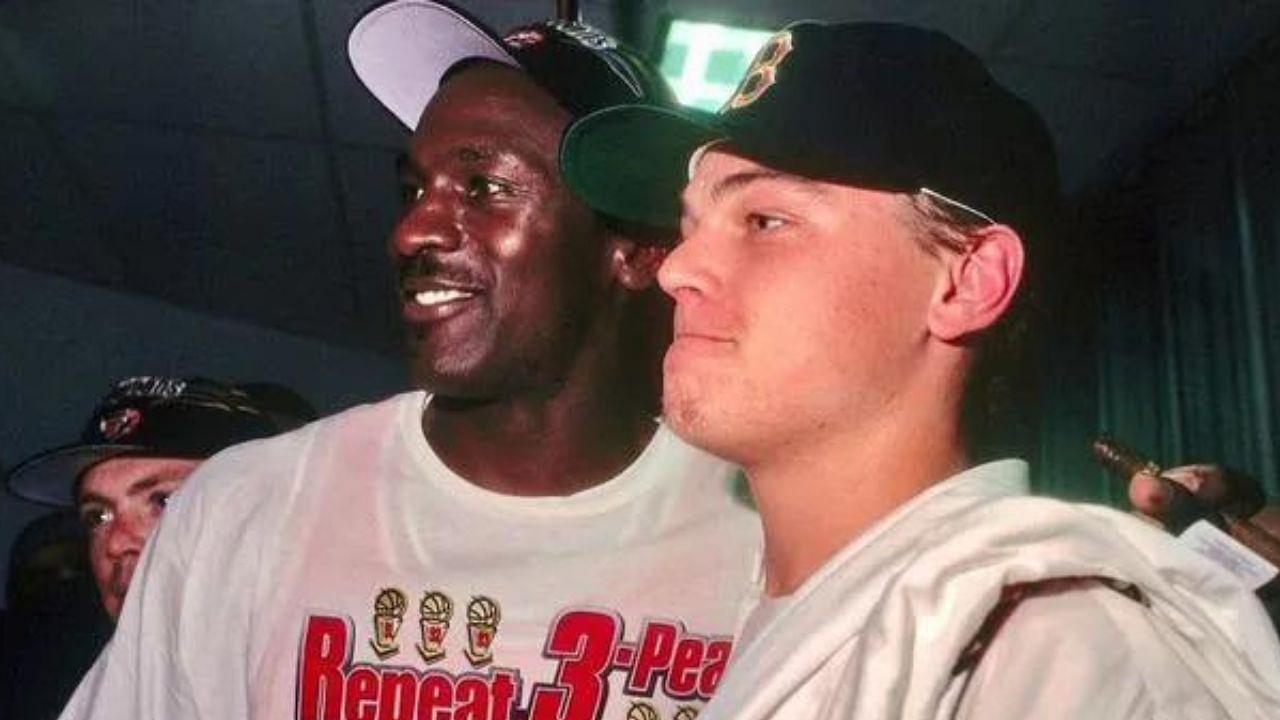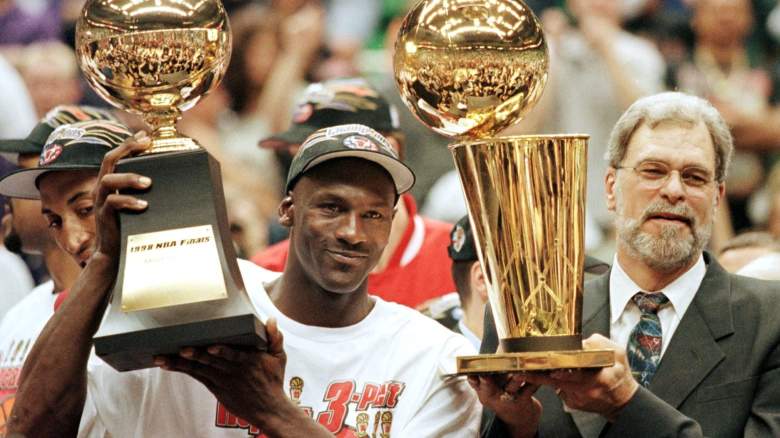In the world of fame and recognition, only a select few can match the legendary status of Michael Jordan. The basketball legend, considered the greatest player of all time, has had a love-hate affair with the public eye. In a thought-provoking interview with GQ from 1989, Jordan exposed the intrinsic struggles of living under continuous media and fan examination. He bravely acknowledged that the constant gaze at times transformed him into, in his own words, an “evil person.”

This disclosure provided an understanding of the monumental pressure of being a celebrated global star. Without realizing it, he would be in disbelief seven years later that he defeated a famous person worth $400 million in a US survey.
Michael Jordan’s Remarkable Recognition in a U.S. Survey
In 1996, Jordan shared his thoughts on a remarkable discovery in a candid YouTube conversation, displaying his humility. His producer told him that a U.S. survey had discovered which individual was most easily identifiable by respondents.
Astonishingly, Jordan came out on top of the survey, excelling over celebrated individuals like Princess Diana, $400m star Cindy Crawford, and even President Clinton.

What made this discovery even more remarkable was that Jordan didn’t recognize the company because of advanced branding, logos, or impressive marketing initiatives.
His trademark red and black attire, linked to the Chicago Bulls, played a crucial part in this recognition. Sports’ power and the cultural impact of the Chicago Bulls’ colors propelled Jordan into a global icon.
This interview highlighted Michael Jordan’s unprecedented popularity and influence beyond the scope of his sport. It was a testament to the lasting impact of a man who dominated basketball and made a significant mark on popular culture. There was a spine-tingling quality to Jordan’s extraordinary performance in the 19th century.

Michael Jordan’s Struggle with Fame and Recognition
In the late ’80s, Michael Jordan’s popularity peaked. The man in charge of the Chicago Bulls was a shining light of accomplishment, guiding the NBA to multiple titles and leaving an indelible mark as an international icon, as fame came with this bid.
His Airness showed how the stress and strain turned him into a “bad” person, he said. This was a sobering insight into the isolated influence of celebrities, where private space and privacy are scarce.
Admitting that he had been turned into a “bad guy” due to the pressures of society only added a layer to his relatability. While survey data cemented his status as a likable figure forever, Jordan’s story still inspires. And it’s exciting, meaning Shadow can support the weight of a whole property. What do you think about MJ’s legacy? Let us know in the comments.








